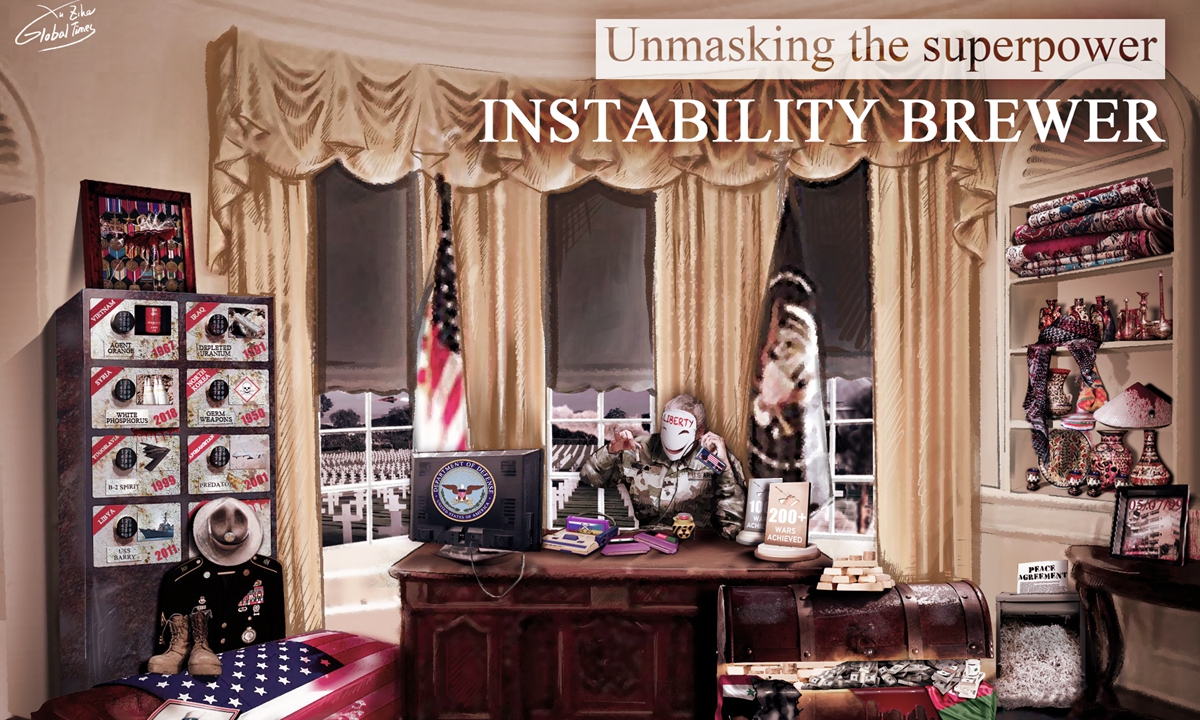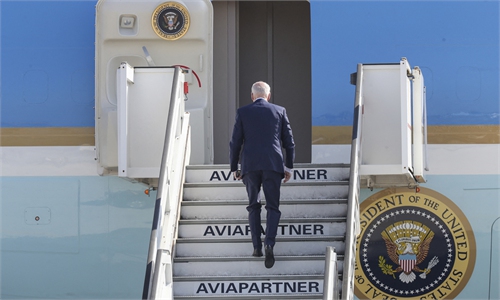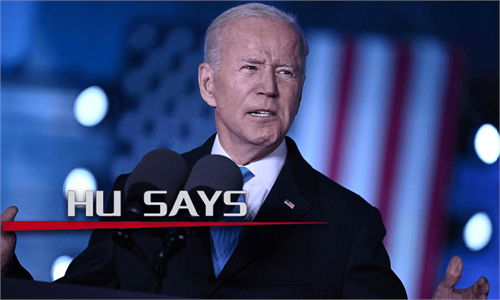
Unmasking the superpower: Warfare-addicted Illustration: Xu Zihe/GT
The main causes of the conflict in Ukraine lay beneath and are more than a mere political dispute between Kiev and Moscow.It's important to note different countries' stances on Russia. South American, African and Asian countries that were in their past colonized by Western powers are friendly or neutral towards Russia. Those that keep an anti-Russian stance are ex-colonial powers. They are attempting to preserve the neocolonial world order (the US, the UK, Canada, Australia and their European allies) founded after independence movements in Africa, South America and Asia in the 1970s.
The conflict in Ukraine is about the geopolitical changes. The previous world order, of nations obedient to the West, is disappearing. The West still has influence over many nations, but they no longer want to be an object of Western exploitation.
Venezuela, Cuba, Syria, and Iran are pursuing their own interests while encountering pressure from the US. Even some reliable US allies are no longer absolutely pro-American.
The Arab countries such as Saudi Arabia and Qatar used to be supporters of US politics in the Middle East. Now, their stance is somewhat different. They resist US pressure and see no point to fall out with Russia or any other of Washington's opponents for the sake of its geopolitical interests.
France and Germany's stances are also noteworthy. The latter sent weapons to Ukraine but continues to trade with Russia. Despite France's imposition of sanctions on Russia, some French companies have chosen to remain in Russia. It illustrates how divided the ex-colonial powers are in their desire to preserve their geopolitical influence. Austria didn't let the Ukrainian president give a speech to the Austrian parliamentarians, anticipating it as a break in Austria's neutrality. Washington doesn't want Austria to be neutral, but Austria has its strategy.
The geopolitical logic pointed to Belarus as the second target to stop its pro-Russian shift and block one more way out for the Russian and Chinese goods to the EU. Fortunately, Belarus avoided Ukraine's destiny and is now open to international partnership, both with Moscow and Beijing. Without control over Belarus, it is difficult for the West to effectively exert its military and economic pressure on Eurasia.
One of the Russian initiatives for getting rid of Western dominance is to drastically cut transactions in US dollars as a countermeasure to US sanctions. Needless to say that geopolitics is tightly dependent on economics and vice versa. The dismantling of Bretton Woods financial system where US dollar is the world main currency means the dismantling of the US neocolonialism.
The core of the American neocolonial hegemony is US geopolitical power multiplied with US dollars as the means of payment for almost every country in the world. It helps Washington to keep hold of the mostly important parts of the planet such as the Middle East, Eastern and Western Africa, the Persian Gulf, the Central and South America depriving them the freedom of choice in economics and politics. The military power and financial power are two pillars of the US hegemony. The ruining at least one of them will inevitably cause the ruining of the other. The war in Ukraine is just one of the triggers of that long-term process.
US hegemony is harmful because it prevents progressive global development, continuing a vicious cycle in which only its own needs are served. But each epoch has its own leaders. We are observing now the epoch of falling US influence as that of stagnant power both in politics and economics. The last resort for the US in its competition with Eurasia is to provoke local conflicts along Eurasian borders to encircle it with unfriendly regimes. The US operated behind the scenes to incite conflict in Ukraine without being directly involved.
For Washington, Ukraine is just a tool to undermine Eurasian geopolitical power. Ukraine itself has no value for American politicians. And the US has no obligations for Ukraine either.
The author is a Ukrainian expert on Central and Eastern European countries. He lives in Russia now. opinion@globaltimes.com.cn



